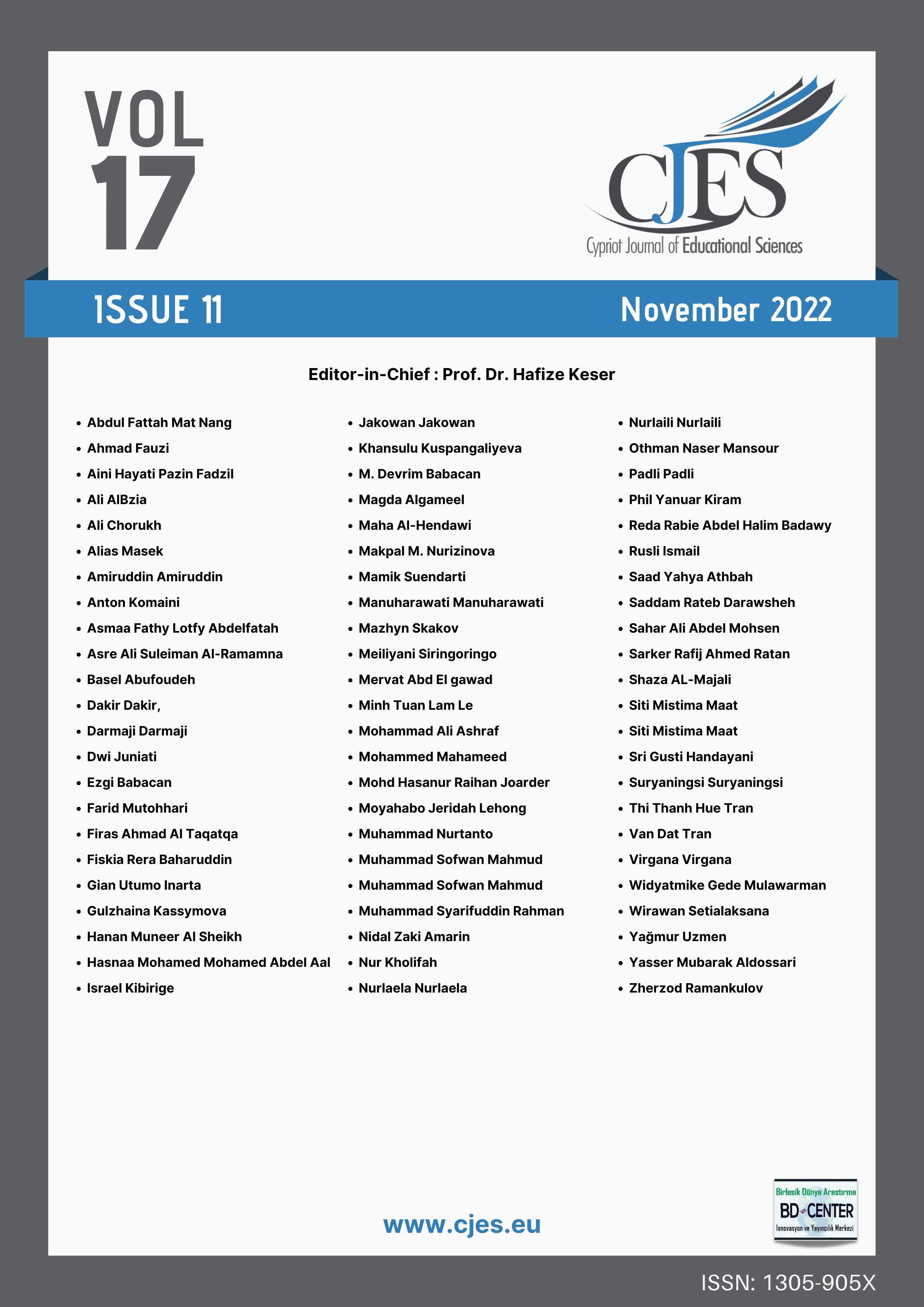Subjective well-being level as a predictor of university students' psychological engagement in blended learning
Main Article Content
Abstract
The purpose of this research is to identify the level of subjective well-being of university students in blended learning, investigate the relationship between subjective well-being and psychological engagement, determine the differences in their subjective well-being level in terms of gender and academic discipline variables, and explore the predictability of psychological engagement level through subjective well-being. For this purpose, the descriptive comparative correlative approach was utilised. Three hundred and sixteen male and female students participated in this research. For data collection, the College Subjective Well-being Questionnaire and the psychological engagement scale were applied to the participants. Results demonstrated that students had a high level of subjective well-being in all its dimensions, there was a statistically significant correlation at (0.01) level between psychological engagement and subjective well-being, the level of psychological engagement can be predicted through the level of subjective well-being, there were statistical differences in the subjective well-being level and all its dimensions due to gender in favour of female students, there were no statistical differences in the level of subjective well-being as a whole due to the academic discipline variable, while there were statistical differences in all its dimensions due to the academic discipline in favour of the literary disciplines.
Keywords: Blended learning, psychological engagement, subjective well-being
Downloads
Article Details

This work is licensed under a Creative Commons Attribution 4.0 International License.
Cypriot Journal of Educational Sciences is an Open Access Journal. The copyright holder is the author/s. Licensee Birlesik Dunya Yenilik Arastirma ve Yayincilik Merkezi, North Nicosia, Cyprus. All articles can be downloaded free of charge. Articles published in the Journal are Open-Access articles distributed under a CC-BY license [Attribution 4.0 International (CC BY 4.0)].
Birlesik Dunya Yenilik Arastirma ve Yayincilik Merkezi (BD-Center)is a gold open-access publisher. At the point of publication, all articles from our portfolio of journals are immediately and permanently accessible online free of charge. BD-Center articles are published under the CC-BY license [Attribution 4.0 International (CC BY 4.0)], which permits unrestricted use, distribution, and reproduction in any medium, provided the original authors and the source are credited.

